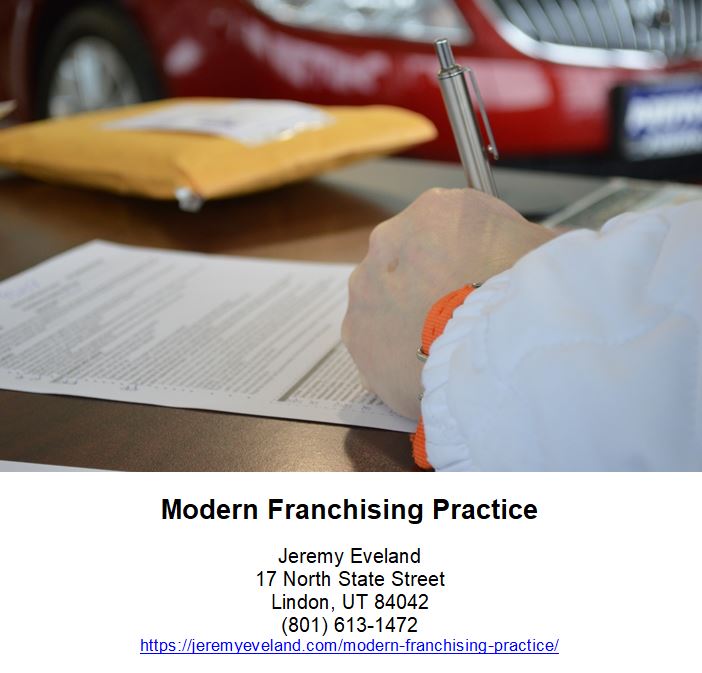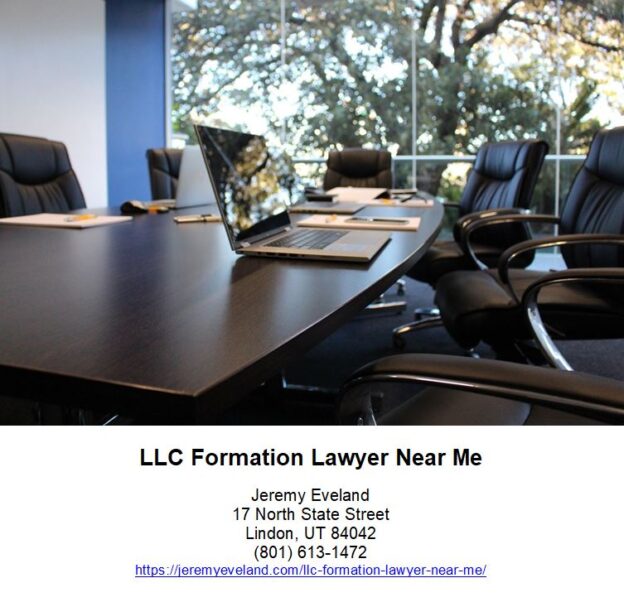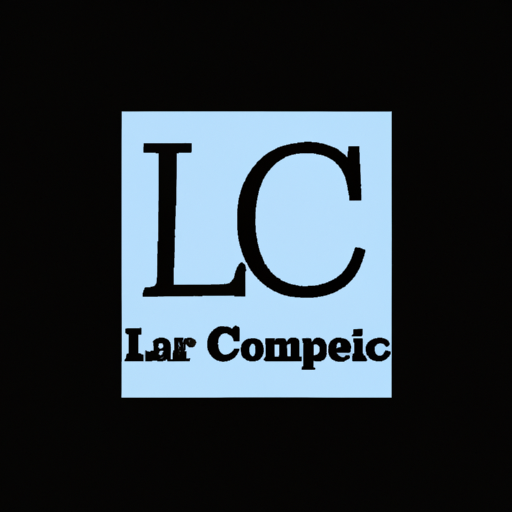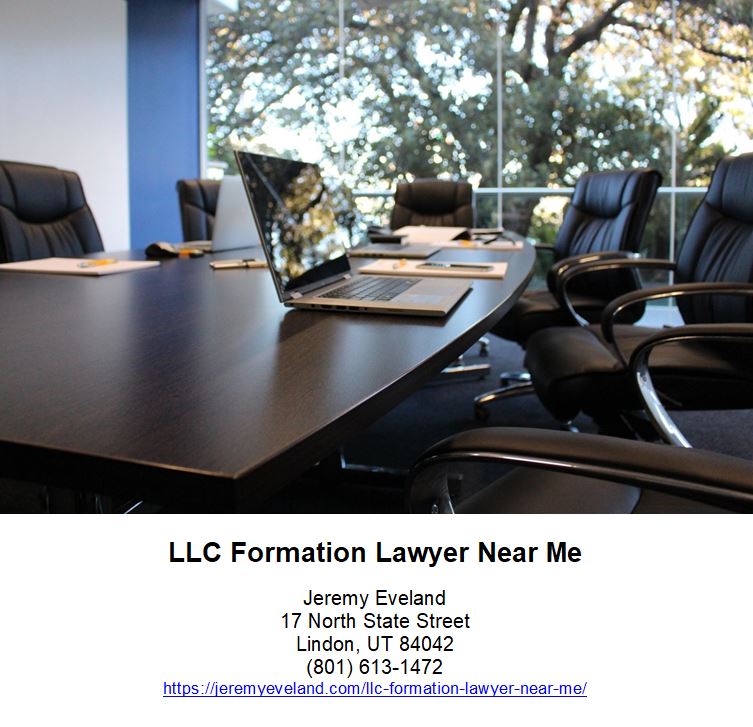-
Business Attorney
- Introduction
- What is an Exit Strategy and Why is it Important?
- What to Consider When Choosing an Exit Strategy
- How to Prepare Your Business for a Sale
- How to Find the Right Buyer for Your Business
- The Legal Support You Need When Planning an Exit Strategy
- How to Maximise Value When Exiting Your Business
- The Pros and Cons of Different Exit Strategies
- How to Choose the Right Exit Strategy for Your Business
- The Essential Guide to Business Exit Strategies
- Why You Need A Business Lawyer To Help You With A Business Exit
- Q&A
“Exit Strategies: Your Path to a Secure Financial Future”
Introduction
Exit strategies are an important part of any business plan. They provide a roadmap for how to exit a business when the time comes. Exit strategies can be used to maximize the value of a business, minimize losses, and provide a smooth transition for the business owners. They can also help to protect the business from potential legal and financial risks. Exit strategies can be tailored to the individual needs of a business and can include a variety of options such as selling the business, transferring ownership, or liquidating assets. This article will provide an overview of exit strategies and discuss the various options available.
What is an Exit Strategy and Why is it Important?
An exit strategy is a plan of action that outlines how a business or investor will exit a current investment. It is important because it helps to ensure that the investor or business is able to maximize their return on investment and minimize their risk. An exit strategy should be developed before any investment is made, as it will help to ensure that the investor or business is able to make the most of their investment.
A business exit strategy should include a timeline for when the investor or business will exit the investment, as well as a plan for how the investment will be liquidated. It should also include a plan for how the proceeds from the sale of the investment will be used. Additionally, an exit strategy should include a plan for how the investor or business will manage any potential risks associated with the investment.
Having an exit strategy is important because it helps to ensure that the investor or business is able to maximize their return on investment and minimize their risk. It also helps to ensure that the investor or business is able to make the most of their investment and that they are able to exit the investment in a timely and efficient manner.
What to Consider When Choosing an Exit Strategy
When choosing an exit strategy, there are several factors to consider.
First, it is important to consider the timeline for the exit. How long do you plan to stay in the business? Are you looking for a short-term exit or a long-term exit? Knowing the timeline will help you determine the best strategy for your situation.
Second, consider the financial implications of the exit strategy. What are the costs associated with the strategy? Will you need to liquidate assets or take out loans? Are there tax implications? Knowing the financial implications of the strategy will help you make an informed decision.
Third, consider the legal implications of the exit strategy. Are there any laws or regulations that must be followed? Are there any contracts that must be terminated? Knowing the legal implications of the strategy will help you ensure that you are in compliance with all applicable laws and regulations.
Fourth, consider the impact of the exit strategy on your employees. Will they be affected by the strategy? Will they need to be laid off or reassigned? Knowing the impact of the strategy on your employees will help you ensure that they are treated fairly and with respect.
Finally, consider the impact of the exit strategy on your customers. Will they be affected by the strategy? Will they need to find a new supplier or service provider? Knowing the impact of the strategy on your customers will help you ensure that they are taken care of and that their needs are met.
By considering these factors, you can make an informed decision about the best exit strategy for your business.
How to Prepare Your Business for a Sale
Preparing your business for sale is a complex process that requires careful planning and consideration. It is important to ensure that all aspects of the business are in order before you begin the sale process. Here are some tips to help you prepare your business for sale:
1. Assess Your Business: Take a close look at your business and assess its strengths and weaknesses. Identify areas that need improvement and make a plan to address them.
2. Update Your Financials: Make sure your financials are up to date and accurate. This includes your balance sheet, income statement, and cash flow statement.
3. Create a Business Plan: A business plan is essential for potential buyers to understand the scope of your business and its potential.
4. Get Your Legal Documents in Order: Make sure all of your legal documents are up to date and in order. This includes contracts, leases, and other legal documents.
5. Clean Up Your Books: Make sure your books are in order and up to date. This includes accounts receivable, accounts payable, and inventory.
6. Prepare Your Employees: Make sure your employees are aware of the sale process and are prepared to answer questions from potential buyers.
7. Market Your Business: Create a marketing plan to promote your business and attract potential buyers.
By following these tips, you can ensure that your business is prepared for sale and ready to attract potential buyers. With the right preparation, you can maximize the value of your business and ensure a successful sale.
How to Find the Right Buyer for Your Business
Finding the right buyer for your business is an important step in the process of selling. It is important to take the time to find a buyer who is a good fit for your business and who will be able to take it to the next level. Here are some tips to help you find the right buyer for your business:
1. Understand Your Business: Before you start looking for a buyer, it is important to have a clear understanding of your business. Take the time to review your financials, operations, and customer base. This will help you determine the type of buyer that would be the best fit for your business.
2. Research Potential Buyers: Once you have a better understanding of your business, you can start researching potential buyers. Look for buyers who have experience in the industry and who have the resources to take your business to the next level.
3. Network: Networking is an important part of finding the right buyer for your business. Reach out to your contacts in the industry and let them know that you are looking for a buyer. You may be surprised at the leads you can generate through networking.
4. Use a Broker: If you are having difficulty finding the right buyer, you may want to consider using a broker. A broker can help you find potential buyers and negotiate the best deal for your business.
5. Consider Your Options: Once you have identified potential buyers, it is important to consider all of your options. Take the time to review each offer and determine which one is the best fit for your business.
Finding the right buyer for your business is an important step in the process of selling. By taking the time to understand your business, research potential buyers, network, and consider your options, you can find the right buyer for your business.
The Legal Support You Need When Planning an Exit Strategy
When planning an exit strategy, it is important to have the right legal support to ensure that the process is successful. An experienced attorney can provide invaluable guidance and advice to help you navigate the complexities of the process.
The first step in the exit strategy process is to determine the best way to structure the transaction. This includes considering the tax implications, the legal requirements, and the financial implications of the transaction. An experienced attorney can help you evaluate the various options and determine the best course of action.
Once the structure of the transaction has been determined, the attorney can help you draft the necessary documents. This includes the purchase agreement, the closing documents, and any other documents that may be required. The attorney can also provide advice on how to negotiate the terms of the transaction and ensure that all parties are in agreement.
The attorney can also provide guidance on the legal requirements for the transaction. This includes ensuring that all applicable laws and regulations are followed, as well as any other legal requirements that may be necessary. The attorney can also provide advice on how to protect your interests during the transaction and ensure that all parties are in agreement.
Finally, the attorney can provide advice on how to handle any disputes that may arise during the transaction. This includes providing advice on how to resolve any disputes that may arise between the parties, as well as providing advice on how to protect your interests in the event of a dispute.
Having the right legal support when planning an exit strategy is essential to ensure that the process is successful. An experienced attorney can provide invaluable guidance and advice to help you navigate the complexities of the process and ensure that all parties are in agreement.
How to Maximise Value When Exiting Your Business
Exiting a business is a major decision that requires careful consideration and planning. Maximising the value of your business when you exit is essential to ensure that you receive the best possible return on your investment. Here are some tips to help you maximise the value of your business when you exit:
1. Prepare for the sale: Before you begin the process of selling your business, it is important to ensure that it is in the best possible condition. This includes ensuring that all financial records are up to date and accurate, that the business is compliant with all relevant regulations, and that the business is well-positioned to attract potential buyers.
2. Identify potential buyers: Identifying potential buyers is an important step in the process of selling your business. Consider potential buyers who may be interested in the business, such as competitors, industry partners, or private equity firms.
3. Negotiate the sale: Once you have identified potential buyers, it is important to negotiate the sale in order to maximise the value of your business. This includes setting a fair price, negotiating terms, and ensuring that the buyer is committed to the purchase.
4. Seek professional advice: Seeking professional advice from an experienced business broker or lawyer can help you to ensure that you receive the best possible return on your investment. They can provide valuable advice on the sale process, as well as help you to negotiate the best possible terms.
By following these tips, you can ensure that you maximise the value of your business when you exit. With careful planning and preparation, you can ensure that you receive the best possible return on your investment.
The Pros and Cons of Different Exit Strategies
Exit strategies are an important part of any business plan. They provide a roadmap for how to exit a business, whether it is through a sale, merger, or other means. While there are many different exit strategies available, each has its own pros and cons. It is important to understand these pros and cons before deciding which exit strategy is best for your business.
Merger
A merger is when two companies combine to form a single entity. This can be a great way to exit a business, as it allows the owners to retain some control over the company and its operations. The downside is that it can be difficult to find a suitable partner and the process can be lengthy and complex.
Sale
Selling a business is a popular exit strategy. It allows the owners to receive a lump sum of cash for their business and move on to other ventures. The downside is that the sale process can be lengthy and complex, and the owners may not receive the full value of their business.
Liquidation
Liquidation is when a business is closed and its assets are sold off to pay creditors. This is a quick and easy way to exit a business, but it can be difficult to get the full value of the business’s assets.
Management Buyout
A management buyout is when the current management team of a business purchases the company from its owners. This can be a great way to exit a business, as it allows the owners to retain some control over the company and its operations. The downside is that it can be difficult to find a suitable buyer and the process can be lengthy and complex.
Joint Venture
A joint venture is when two companies form a partnership to pursue a specific project or venture. This can be a great way to exit a business, as it allows the owners to retain some control over the company and its operations. The downside is that it can be difficult to find a suitable partner and the process can be lengthy and complex.
No matter which exit strategy you choose, it is important to understand the pros and cons before making a decision. Each exit strategy has its own advantages and disadvantages, and it is important to weigh these carefully before deciding which is best for your business.
How to Choose the Right Exit Strategy for Your Business
When it comes to running a business, having an exit strategy is essential. An exit strategy is a plan for how you will leave your business when the time comes. It can help you maximize the value of your business and ensure that you are prepared for the future.
Choosing the right exit strategy for your business can be a difficult decision. There are many different options available, and each one has its own advantages and disadvantages. Here are some tips to help you choose the right exit strategy for your business:
1. Consider Your Goals: Before you can choose the right exit strategy, you need to consider your goals. What do you want to achieve with your exit strategy? Are you looking to maximize the value of your business or are you looking to minimize the amount of taxes you will owe? Knowing your goals will help you narrow down your options and make the right decision.
2. Understand Your Options: There are many different exit strategies available, including selling your business, passing it on to family members, or liquidating your assets. Take the time to research each option and understand the pros and cons of each.
3. Consider Your Timeline: When do you plan to exit your business? This will help you determine which exit strategy is best for you. If you plan to exit in the near future, you may want to consider a strategy that will allow you to maximize the value of your business. If you plan to exit in the distant future, you may want to consider a strategy that will minimize the amount of taxes you will owe.
4. Seek Professional Advice: It is important to seek professional advice when choosing an exit strategy. A financial advisor or accountant can help you understand the different options available and make the best decision for your business.
Choosing the right exit strategy for your business can be a difficult decision. However, by considering your goals, understanding your options, considering your timeline, and seeking professional advice, you can make the best decision for your business.
The Essential Guide to Business Exit Strategies
The decision to exit a business is a major one, and it is important to understand the various exit strategies available. This guide will provide an overview of the most common exit strategies, including their advantages and disadvantages, so that you can make an informed decision about the best option for your business.
1. Selling the Business: Selling the business is the most common exit strategy. It involves finding a buyer who is willing to purchase the business for a fair price. The advantages of this strategy include the potential for a large return on investment, the ability to maintain control of the business until the sale is complete, and the potential to negotiate a favorable deal. The disadvantages include the potential for a lengthy sales process, the need to find a qualified buyer, and the potential for a lower sale price than expected.
2. Passing the Business to Family Members: Passing the business to family members is another common exit strategy. This strategy involves transferring ownership of the business to a family member or members. The advantages of this strategy include the potential for a tax-free transfer of ownership, the ability to maintain control of the business until the transfer is complete, and the potential to pass on the business to the next generation. The disadvantages include the potential for family conflict, the need to find a qualified family member to take over the business, and the potential for a lower sale price than expected. We talk more about this strategy here.
3. Merging with Another Business: Merging with another business is another exit strategy. This strategy involves combining two businesses into one. The advantages of this strategy include the potential for increased market share, the ability to maintain control of the business until the merger is complete, and the potential to create a larger, more profitable business. The disadvantages include the potential for a lengthy merger process, the need to find a qualified partner, and the potential for a lower sale price than expected.
4. Liquidating the Business: Liquidating the business is another exit strategy. This strategy involves selling off the assets of the business in order to pay off creditors and other obligations. The advantages of this strategy include the potential for a quick return on investment, the ability to maintain control of the business until the liquidation is complete, and the potential to pay off creditors and other obligations. The disadvantages include the potential for a lower sale price than expected, the need to find qualified buyers for the assets, and the potential for a lengthy liquidation process.
No matter which exit strategy you choose, it is important to understand the advantages and disadvantages of each option. This guide has provided an overview of the most common exit strategies, so that you can make an informed decision about the best option for your business.
Why You Need A Business Lawyer To Help You With A Business Exit
When it comes to exiting a business, it is important to have a business lawyer on your side. A business lawyer can provide invaluable advice and guidance throughout the process, helping to ensure that the exit is successful and that all legal requirements are met.
A business lawyer can help you to understand the legal implications of exiting a business. They can provide advice on the best way to structure the exit, including the tax implications and any potential liabilities. They can also help to negotiate the terms of the exit, ensuring that all parties are satisfied with the outcome.
A business lawyer can also help to protect your interests during the exit process. They can review any contracts or agreements that are involved in the exit, ensuring that they are legally binding and that all parties are aware of their rights and obligations. They can also help to resolve any disputes that may arise during the process.
Finally, a business lawyer can help to ensure that the exit is completed in a timely manner. They can provide advice on the best way to move forward and can help to ensure that all deadlines are met.
Having a business lawyer on your side during a business exit can be invaluable. They can provide advice and guidance throughout the process, helping to ensure that the exit is successful and that all legal requirements are met.
Q&A
1. What is an exit strategy?
An exit strategy is a plan for how a business or investor will get out of an investment or business venture. It outlines the steps that will be taken to liquidate the investment or business and maximize the return on the investment.
2. Why is an exit strategy important?
An exit strategy is important because it helps to ensure that the investor or business owner will be able to maximize their return on the investment and minimize their losses. It also helps to ensure that the investor or business owner will be able to exit the investment or business in an orderly manner.
3. What are some common exit strategies?
Some common exit strategies include selling the business or investment to another party, taking the business or investment public, liquidating the assets of the business or investment, and transferring ownership of the business or investment to another party.
4. What factors should be considered when developing an exit strategy?
When developing an exit strategy, factors such as the current market conditions, the potential buyers or investors, the tax implications, and the timeline for the exit should all be considered.
5. What are the benefits of having an exit strategy?
Having an exit strategy can help to ensure that the investor or business owner will be able to maximize their return on the investment and minimize their losses. It can also help to ensure that the investor or business owner will be able to exit the investment or business in an orderly manner.
6. What are the risks of not having an exit strategy?
The risks of not having an exit strategy include not being able to maximize the return on the investment, not being able to exit the investment or business in an orderly manner, and not being able to minimize losses.
7. How can an exit strategy be implemented?
An exit strategy can be implemented by developing a plan that outlines the steps that will be taken to liquidate the investment or business and maximize the return on the investment. This plan should be reviewed and updated regularly to ensure that it is still relevant and effective.
8. What are the costs associated with implementing an exit strategy?
The costs associated with implementing an exit strategy can vary depending on the complexity of the strategy and the resources required to implement it. These costs can include legal fees, accounting fees, and other professional fees.
9. What are the tax implications of an exit strategy?
The tax implications of an exit strategy can vary depending on the type of strategy and the jurisdiction in which it is implemented. It is important to consult with a tax professional to ensure that the strategy is compliant with applicable tax laws.
10. What are the most important things to consider when developing an exit strategy?
The most important things to consider when developing an exit strategy are the current market conditions, the potential buyers or investors, the tax implications, and the timeline for the exit. It is also important to ensure that the strategy is compliant with applicable laws and regulations.
Areas We Serve
We serve individuals and businesses in the following locations:
Salt Lake City Utah
West Valley City Utah
Provo Utah
West Jordan Utah
Orem Utah
Sandy Utah
Ogden Utah
St. George Utah
Layton Utah
South Jordan Utah
Lehi Utah
Millcreek Utah
Taylorsville Utah
Logan Utah
Murray Utah
Draper Utah
Bountiful Utah
Riverton Utah
Herriman Utah
Spanish Fork Utah
Roy Utah
Pleasant Grove Utah
Kearns Utah
Tooele Utah
Cottonwood Heights Utah
Midvale Utah
Springville Utah
Eagle Mountain Utah
Cedar City Utah
Kaysville Utah
Clearfield Utah
Holladay Utah
American Fork Utah
Syracuse Utah
Saratoga Springs Utah
Magna Utah
Washington Utah
South Salt Lake Utah
Farmington Utah
Clinton Utah
North Salt Lake Utah
Payson Utah
North Ogden Utah
Brigham City Utah
Highland Utah
Centerville Utah
Hurricane Utah
South Ogden Utah
Heber Utah
West Haven Utah
Bluffdale Utah
Santaquin Utah
Smithfield Utah
Woods Cross Utah
Grantsville Utah
Lindon Utah
North Logan Utah
West Point Utah
Vernal Utah
Alpine Utah
Cedar Hills Utah
Pleasant View Utah
Mapleton Utah
Stansbury Par Utah
Washington Terrace Utah
Riverdale Utah
Hooper Utah
Tremonton Utah
Ivins Utah
Park City Utah
Price Utah
Hyrum Utah
Summit Park Utah
Salem Utah
Richfield Utah
Santa Clara Utah
Providence Utah
South Weber Utah
Vineyard Utah
Ephraim Utah
Roosevelt Utah
Farr West Utah
Plain City Utah
Nibley Utah
Enoch Utah
Harrisville Utah
Snyderville Utah
Fruit Heights Utah
Nephi Utah
White City Utah
West Bountiful Utah
Sunset Utah
Moab Utah
Midway Utah
Perry Utah
Kanab Utah
Hyde Park Utah
Silver Summit Utah
La Verkin Utah
Morgan Utah
Exit Strategies Consultation
When you need help with Exit Strategies call Jeremy D. Eveland, MBA, JD (801) 613-1472 for a consultation.
Jeremy Eveland
17 North State Street
Lindon UT 84042
(801) 613-1472
Related Posts
Estate Planning Lawyer West Jordan Utah
Business Acquisition Lawyer Sandy Utah
Estate Planning Lawyer Orem Utah
Legal Requirements To Form A Trust
Charitable Estate Planning Trusts
Estate Planning Lawyer Sandy Utah



















